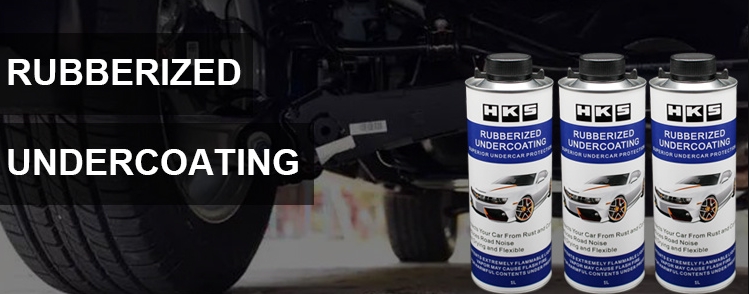Rust is one of metal’s greatest challenges. Not to talk of the damages that it creates as a physical appearance. It prevents machinery from functioning properly and takes off the shiny, new-looking surface of metals, leaving them rusty, and does rubberized undercoating stop rust?
No, rubberized undercoating does not stop rust. Although rubberized undercoating is great at preventing rust from being obvious, it does next to nothing at preventing rust from occurring or the spread of it at all.
Getting rid of rust on metal surfaces is necessary, but preventing the rust from occurring altogether is best, especially if you want to prolong the object’s lifespan.
This article explains the term “rubberized undercoating” and other important details you should know about this topic.
Contents
What Is Rubberized Undercoating?
Rubberized Undercoating is a form of undercoating that provides a build-up that produces a textured finish that resists chipping, abrasion, weathering, and exterior rusting.
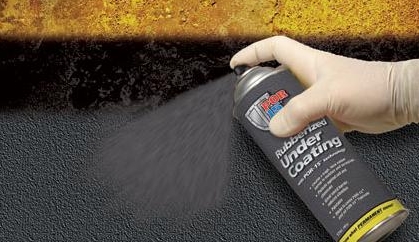
Rubberized undercoating is applied to vehicles to help protect their undercarriage and other crucial parts such as wheel wells, floor pans, door skins, the underside of the hood, the interior sides of fenders, and trunk lids. Rubberized undercoating can also be used to reduce the occurrence of noise allowing for a quieter wide in vehicles.
For the long term protection of vehicles, the rubberized coating is often applied to the undercarriage to help reduce the effect of abrasion. The effect of rubberized coating to prevent rust however is what we are looking into in this article.
Does Rubberized Undercoating Prevent Rust?
No. Rubberized undercoating does not prevent rust. Although it does a great job at covering existing rust and keeping it sharp, it is not effective in slowing down corrosion or stopping rust. This is because rubberized undercoating traps are and moisture and is even prone to contributing to the formation of rust on metal surfaces.
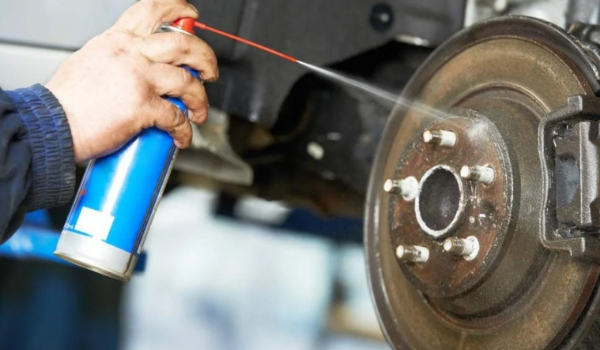
Rubberized undercoating might not be a very good idea most especially if you reside in an area that is prone to rust. This means an area that is abundant in oxygen and moisture. Also, rubberized undercoating does not totally prevent the passage of water, and when water seeps through, the rusting process becomes faster.
The rubber characteristics of the dried films of rubberized coat products make the finished product appear smooth and long-lasting nonetheless, this allows for air and moisture to pass through the coating.
So while the coating might last long, and the molecules of the coating are bonded tightly together, rubberized formulas still lack the major adhesive qualities needed. The increased cohesion of the rubber can heighten the problem, allowing rust to spread at really fast rates instead of preventing the rust from spreading at all.
Which Is Better; Rust Proofing or Undercoating?
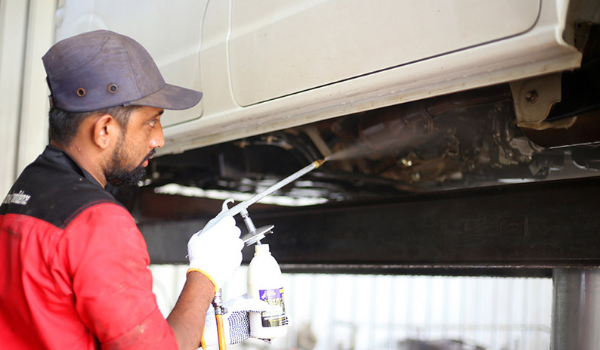
- Rust proofing: Rust proofing is used to treat specific, hard to reach points all over your vehicle that are good places for rust to develop. It is carried out by spraying a certain kind of protective wax over the parts of the vehicle that can easily be chipped or good enough for moisture to accumulate. These areas of the vehicle are also usually exposed and rust proofing is done to prevent rust from claiming any form of foothold initially.
- Undercoating: This is a method of applying wax or rubber-based composite to the total under-area of a vehicle by spraying. Undercoating is designed to produce a rustproof layer between the underside of the vehicle and the moisture of the road. This provides a more comprehensive layer of protection for your vehicle. This is because, even though the underside of your vehicle might not be visible, it is exposed to potential damage from the ice, salt, moisture, and other properties of the road. Other things such as sort, mud, and debris can sometimes get into the undercarriage of your vehicle while you’re driving. Undercoating can also be applied to wheel wells, frames, and floorboards of vehicles.
Rust Proofing Vs. Undercoating
The real answer is that none is better than the other and your choice depends largely on the area you reside in. Both rust proofing and undercoating are designed to protect your vehicle from corrosion and rust.
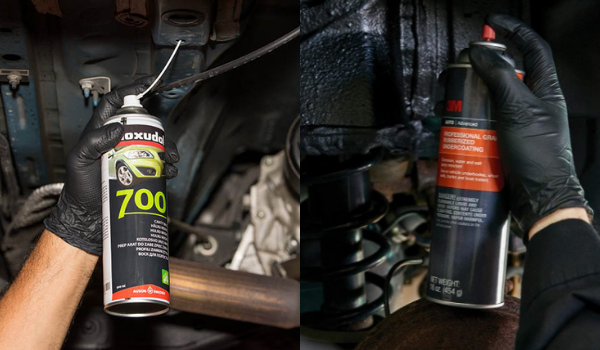
Unfortunately, it is always difficult to fathom where rust would reside on your vehicle and while this might not be too good, there are ways to combat it. The truth however remains that some parts of your vehicle are more protected than others.
It is always best for your vehicle to undergo both processes, or at least seek professional advice. Other factors such as the weather condition of where you live is also a major factor in determining which you might need the most.
How Do I Keep My Car from Rusting?
Rust is a challenge for car owners. It is however easy to prevent if you’re prepared to deal with it. The most common cause of rust is continuous exposure to moisture. Also, if you do not have a garage, harmful pollutants present in the air and even bad weather conditions are major contributing factors.
How do you prevent rust? Here are seven major ways to do so;
- Use a coating made of ceramic
- Clean your car frequently and thoroughly especially after a long drive.
- Make use of special anti-rust spray designed for vehicles.
- Ensure the drain plugs of your vehicle are kept clear.
- Keep the interior parts of your vehicle dry.
- Protect the car from scratches.
- Watch out for salt.

